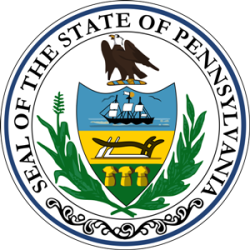Rep. Payne Optimistic About Pennsylvania Online Gambling Bill

In 2013, Pennsylvania first expressed an interest in online gaming with the state subsequently making great strides towards expansion over a relatively short period. Last month, State Representative John Payne (R-Hummelstown) then introduced two online gambling bills to the state legislature, including HR 140, which calls upon Congress to reject the Restoration of America’s Wire Act (RAWA), and more importantly HB 649, which aims to regulate online gambling throughout Pennsylvania. Furthermore, Payne seems optimistic about the chances of his bill progressing in the present legislative session, and following discussions with Governor Tom Wolf, commented:
“So far the governor.. [and] most people are open-minded about it. Show me how it’s going to work, show me how we’re going to protect the minors and the compulsive gamblers, and show me how the revenue stream will work.”
Both Poker And Casino Games Legal
Under HB 649, established casino operators in Pennsylvania would be allowed to offer online poker and casino type games for the price of a $5 million license, with 14% of their gross revenues subsequently being collected as taxes. On the way to legislation, Pennsylvania is also unlikely to encounter the same level of resistance currently being seen in the state of California as there are fewer gambling interest groups expressing opposition to the move, while State Representative John Payne has already secured a measure of bipartisan support for his bill. As Payne explains:
“Representative Kotik and I both introduced this bill and he’s my co-chair on the Democratic Side. So we tried to set the tone by saying the two chairmen are going to cosponsor the bill and introduce the bill.”
Pa Casino Revenues Falling
Pennsylvania opened its first slot machine casinos in 2006, and by 2010 table games were added to the gambling mix. In 2012, Pennsylvania then generated an impressive $3.16 billion in revenues, in the process usurping New Jersey as the country’s second biggest gambling market, but by 2013 that figure had dropped to $3.11 billion, and in 2014 revenues had fallen further to $3.07 billion. Highlighting this “negative trend,” Payne has been stressing the pressing need to find new revenues sources, and said:
“If I have [the] choice of an income-tax increase or additional gaming revenue, I’m taking additional gaming revenue.”
$120m In Additional Revenues
Unlike New Jersey which pre-regulation initially predicted state iGaming revenues in excess of $1 billion, Pennsylvania has the benefit of now having learned from the experience of its neighboring state, which has had a regulated industry for more than a year. As a result, Payne has estimated Pennsylvania can expect to generate roughly the same amount of revenues as New Jersey of $120 million in its first year of regulation, a forecast he says is conservative considering Pennsylvania has a state population of 12.8 million compared to 8.9 million for the Garden State.
Taking the comparison further, Pennsylvania can then expect its iGaming revenues to be divided roughly 75% for casino games, and 25% for online poker, which is a more realistically appraisal than the one bandied around in New Jersey pre-regulation which initially saw poker as the driving force behind a future regulated industry.
Adelson Hoping To Ruin The Party
Despite Pennsylvania appearing receptive to gambling expansion right now, casino billionaire Sheldon Adelson happens to own the Sands Casino Resort Bethlehem, the state’s most successful gambling establishment, and he will likely attempt to stifle support for HB 649 in the near future. Meanwhile, Adelson’s ‘Coalition to Stop Internet Gambling’ are simultaneously pursuing a federal ban on internet gambling via the Restoration of America’s Wire Act (RAWA) currently being discussed in Washington DC.
Whether Adelson will gain support for RAWA on Capitol Hill leading to a ban on all forms of internet gambling except horse racing, sports wagering, and fantasy sports is dubious, however, as thus far just 15 co-sponsors have come out in favor of legislation out of a House of Representative consisting of 435 members. Furthermore, many US states are currently in desperate need of additional revenue sources, and in any case numerous politicians no longer seem willing to accept Sheldon Adelson’s hypocritical stance on the whole online gambling versus live gambling debate. As former Republican congressman Ron Paul wrote on ronpaulinstitute.org a few months back:
“It is an open secret, at least inside the Beltway, that this legislation is being considered as a favor to billionaire casino owner, Sheldon Adelson. Mr. Adelson, who is perhaps best known for using his enormous wealth to advance a pro-war foreign policy, is now using his political influence to turn his online competitors into criminals.”










